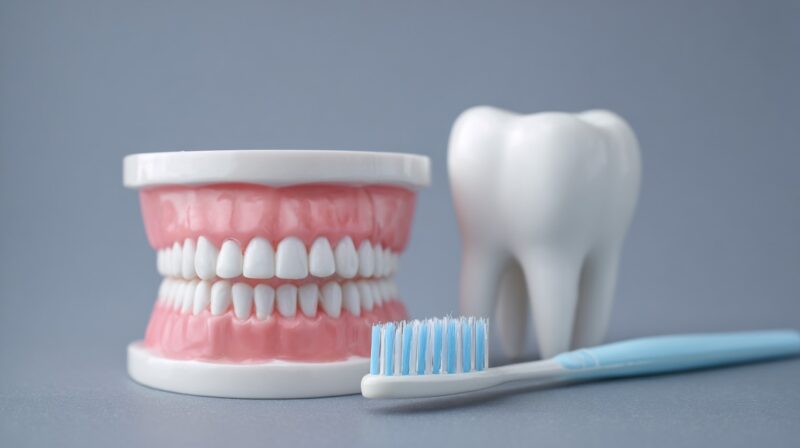Immune health should be a priority throughout the year, not just during cold and flu season.
While numerous factors shape how well the immune system functions, day-to-day habits influence its overall strength and responsiveness.
Every small decision made during the day adds up.
Eat a Balanced, Nutrient-Dense Diet

A strong immune system thrives on a steady supply of essential nutrients. Whole plant foods offer a nutritional foundation that supports immune strength through antioxidants, fibers, vitamins, and minerals.
Fruits, vegetables, legumes, seeds, and nuts nourish immune cells and shield them from damage caused by oxidative stress. Antioxidants like vitamins A, C, and E neutralize harmful free radicals that can weaken immune response.
Fiber supports gut microbiota, which in turn regulates immunity through complex signaling pathways.
- Vitamin C found in oranges, bell peppers, and broccoli helps boost white blood cell production
- Vitamin A from carrots, sweet potatoes, and leafy greens supports skin and mucosal barriers
- Vitamin E in sunflower seeds and almonds protects cells from oxidative damage
- Zinc found in beans, seeds, and lentils enhances antibody production
- Vitamin B6 present in bananas, chickpeas, and fortified cereals assists in biochemical immune processes
- Fiber from oats, apples, and legumes strengthens gut flora, which regulates inflammatory responses
Avoiding excessive consumption of ultra-processed snacks, refined sugars, and saturated fats reduces chronic inflammation and insulin resistance.
Choosing whole, colorful foods at each meal supports a resilient immune defense system.
Make the plate a source of nourishment and balance rather than a place of nutrient scarcity.
Practice Good Oral Hygiene

Oral care influences immune health more than most realize.
Harmful bacteria in the mouth can find their way into the bloodstream, spreading inflammation to other systems and placing extra demand on immune resources.
Maintaining daily oral hygiene practices limits the bacterial burden and minimizes chronic inflammatory markers associated with gum disease.
- Brush teeth twice a day using fluoride toothpaste
- Floss once daily to remove debris between teeth that brushing misses
- Use antibacterial mouthwash as needed to reduce microbial buildup
- Visit a dentist every six months for cleaning and early detection of issues
Gum infections and untreated cavities are more than cosmetic problems; they can weaken the body’s ability to manage systemic threats.
Protecting the mouth safeguards the immune system by cutting off a major source of unnecessary inflammation.
Prioritize Quality Sleep

Restful sleep does more than just recharge energy levels, it resets the body’s internal systems and empowers immune cells to multiply, travel, and coordinate their defenses.
During sleep, T-cells increase in circulation, and inflammation is kept in check through the release of regulatory compounds.
Hormones stabilize, tissues repair, and the immune system strengthens its ability to recognize and respond to potential invaders.
Chronic sleep deprivation disrupts this process. Less sleep leads to fewer cytokines, which act as messengers for the immune response.
That decline slows the body’s ability to fend off viruses and recover from illness.
Aim for 7 to 9 hours of uninterrupted sleep every night. Set sleep as a non-negotiable priority, not a luxury. Just like brushing teeth or eating meals, it forms a foundation of health.
- Stick to a consistent bedtime and wake-up schedule, even on weekends
- Put screens away one hour before sleep to reduce blue light and support melatonin release
- Make the bedroom a sleep-friendly space by keeping it cool, dark, and free of distractions
- Skip caffeine or heavy meals late in the day to avoid triggering restlessness or indigestion
- Self-care also means tending to needs that go unnoticed during busy routines
- Include regular dentist visits as self-care, since oral inflammation can interfere with restful sleep.
Missing quality rest affects memory consolidation, mood, and immune memory—the body’s ability to recognize and defend against familiar pathogens. Build habits that protect rest, and immune strength will follow.
Exercise Moderately and Consistently

Regular movement helps circulate immune cells throughout the body, allowing them to scan for threats and respond more efficiently. It also reduces inflammation and encourages hormonal balance.
High-intensity training may cause temporary immune suppression, but moderate aerobic exercise, meditation, or yoga strengthens defenses when performed consistently.
- Brisk walking around the neighborhood or on a treadmill
- Cycling at a comfortable pace, outdoors or indoors
- Swimming with steady, moderate laps
- Low-impact aerobics or light resistance training
Aim for at least 150 minutes of moderate activity per week, spread over several days.
Physical activity doesn’t require fancy equipment or a gym membership; commitment matters more than setting.
Maintain a Healthy Weight

Body fat isn’t just stored energy, it behaves like an active tissue that releases compounds promoting inflammation.
Carrying excess fat, especially in the abdominal area, places continuous pressure on the immune system.
Research shows that higher weight can lower the effectiveness of vaccines and slow recovery after illness.
- Stick to portion-controlled, nutrient-rich meals
- Engage in regular movement tailored to personal ability
- Avoid excessive snacking and mindless eating
- Track progress through measurements or health markers, not just the scale
Rather than pursuing drastic changes, focus on steady improvements that reduce metabolic stress and promote sustainable immune health.
Stay Hydrated

Water acts as the highway for immune cells, nutrients, and waste products.
Without proper hydration, lymph, which carries infection-fighting white blood cells, moves less efficiently.
Skin and mucous membranes also depend on fluid intake to act as first-line barriers.
- Drink at least 8 cups of water, more during exercise or hot days
- Carry a reusable bottle as a visual cue to drink regularly
- Limit intake of sugary beverages and caffeinated drinks that may dehydrate
- Eat water-rich foods like cucumbers, melons, and leafy greens
Hydration influences how well organs function, how quickly nutrients are absorbed, and how easily waste is removed.
Keeping fluid intake consistent supports immune coordination across the body.
Summary
Immune health grows stronger through small, consistent actions.
No single behavior guarantees protection, but stacking daily habits builds a reliable defense system.
Starting with one or two manageable change sets the course for long-term resilience.
Related Posts:















